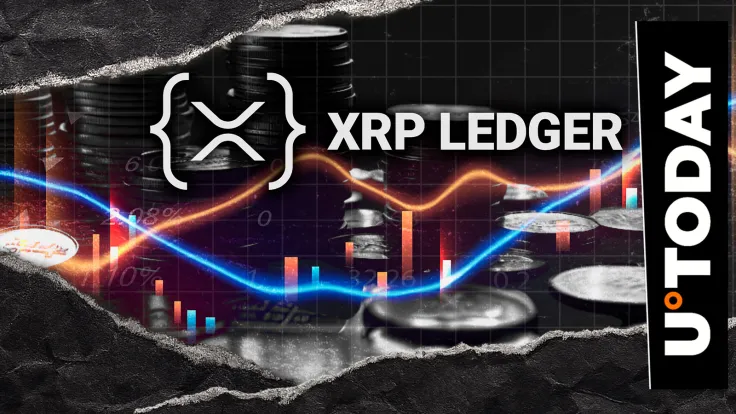Alongside new 1099-DA reporting rules set for 2026, the federal government is moving toward deeper international data sharing and stricter domestic transparency. At the same time, the Digital Chamber is ramping up state-level advocacy through its new State Network, which is a nationwide initiative backed by Strategy, Hedera and Input Output. The goal of the initiative is to educate lawmakers, shape local legislation and build long-term political support for digital asset innovation.
Crypto Tax Rules Tighten
The White House is reviewing a major Internal Revenue Service proposal that would pull the United States into the global Crypto-Asset Reporting Framework (CARF). This will be one of the biggest steps yet toward tighter international oversight of digital asset activity.
The proposal was submitted last Friday and titled “Broker Digital Transaction Reporting,” and would formally align the US with 72 countries that have already committed to implementing CARF by 2028. Although the IRS did not classify the rule as “economically significant,” its impact on American crypto users would be major, as it will force far stricter reporting requirements for anyone holding or trading digital assets on foreign platforms.
Broker Digital Transaction Reporting proposal
CARF was created by the OECD in late 2022, and it is designed to help governments share cryptocurrency account data across borders to combat tax evasion. The framework is scheduled to launch in 2027 with 50 countries — including major economies like the UK, Italy, Mexico, Brazil, Indonesia and Spain — already preparing to participate. Another 23 countries, the United States among them, signaled commitments to adopt CARF rules by 2028. Combined, the initiative covers more than one-third of the world, which is a scale intended to make it much more difficult for crypto users to hide offshore activity by moving assets across jurisdictions.
(Source: Pixelplex)
In a policy recommendations report that was released in late July, the White House argued that adopting CARF will help prevent American taxpayers from shifting digital assets to foreign exchanges in an attempt to bypass reporting obligations. Officials also said the move would ensure US-based crypto platforms do not face competitive disadvantages by operating under stricter domestic oversight than offshore rivals.
In the US, even tougher transparency rules are on the way. Beginning in January of 2026, US exchanges will be required to issue 1099-DA forms, a new reporting structure that captures detailed inflow and outflow data for crypto transactions — including transfers between wallets. Crypto tax attorney Clinton Donnelly said the 1099-DA rollout suggests the “beginning of the end of crypto anonymity” in the United States.
He explained that the IRS currently lacks instant visibility into activity on public blockchains, but warned that with enhanced reporting, better analytical tools and improved data integration, the agency will soon have the ability to scan networks at scale, identify non-compliant taxpayers and target them for audits.
State Network Expands Crypto Advocacy
The Digital Chamber also recently unveiled a nationwide initiative that is designed to influence state-level digital asset policy ahead of the 2026 midterm elections. The new effort is known as the State Network, and its goal is to connect policymakers, regulators and industry leaders in a shared ecosystem focused on advancing blockchain adoption and equipping lawmakers with the expertise needed to craft effective legislation.
Several major industry players signed on as inaugural members, including Michael Saylor’s firm Strategy, the Hedera public network and Input Output, the blockchain research company behind Cardano’s infrastructure work. Their participation already suggests that there is strong industry backing for a movement that is shifting more of the crypto policy fight from Washington to state capitals.
Education is central to the initiative. Through a partnership with the nonprofit Future Caucus, the State Network plans to train lawmakers in targeted states and develop a pipeline of future political leaders who understand digital assets. Cody Carbone, CEO of The Digital Chamber, said the collaboration will help build “a bench of strong leaders” capable of shaping policies that keep states competitive in the digital economy.
Crypto already played a big role in the 2024 federal election cycle, where companies poured more than $134 million into campaigns and media efforts.
Beyond policy engagement, the State Network is also launching a Microgrants Program, which is set to begin in 2026 and will strengthen state blockchain associations, university blockchain clubs and community innovation groups. The grants will support policy toolkits, regulatory sandboxes and grassroots educational initiatives.
Anastasia Dellaccio, the network’s executive director, described the program as a foundational effort to empower local advocacy groups that can mobilize around digital asset issues. Although the initiative officially launched on Monday, the State Network has already been active in New York, Arizona, Ohio and New Hampshire, where it began educating lawmakers on blockchain and digital asset use cases.
A national advocacy tour, the 2026 Digital Asset Tour, is also planned to bring the group’s efforts directly to state legislatures across the country.
Source: https://coinpaper.com/12424/us-edges-closer-to-joining-worldwide-crypto-tax-network


